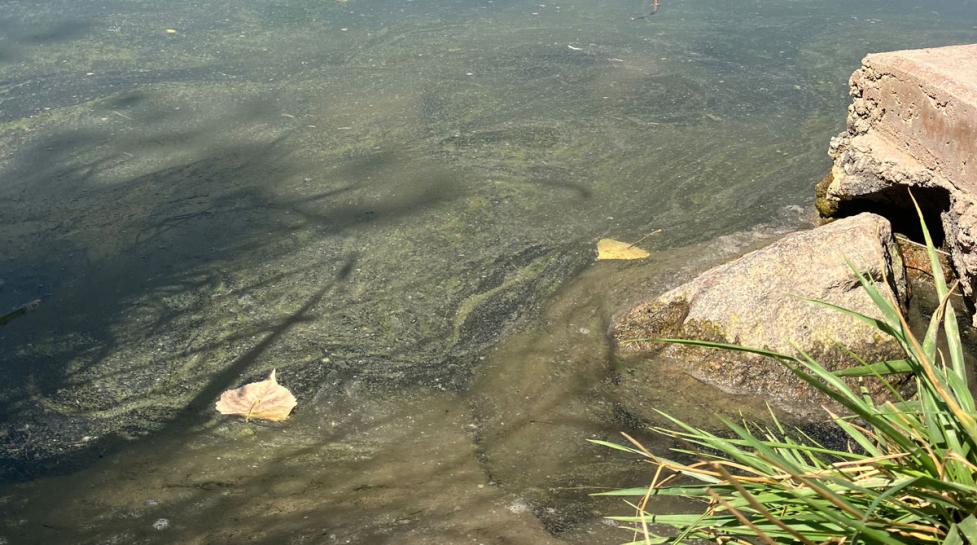With warm temperatures and a wet spring these past few weeks, the City of Boulder reminds community members to be cautious around city lakes and ponds where algae blooms may be present. At elevated levels, some algae may produce toxins that are harmful to people and pets.
With warm temperatures and a wet spring these past few weeks, the City of Boulder reminds community members to be cautious around city lakes and ponds where algae blooms may be present.
At elevated levels, some algae may produce toxins that are harmful to people and pets. Please remember to avoid contact with the water where algae are observed.
Algae blooms naturally occur in aquatic ecosystems and can appear rapidly during hot weather, according to the Colorado Department of Public Health and Environment. Blooms also tend to appear in slow-moving water bodies, such as lakes and ponds.
Some algae blooms can contain cyanobacteria – often referred to as blue-green algae. While the vast majority of algae often seen in ponds and lakes during summer months are not toxic, cyanobacteria can produce toxins that can be harmful to humans and dogs. Warmer temperatures, stagnant water, and nitrogen and phosphorus (nutrient) loading from fertilized lawns and other sources facilitate algae and cyanobacteria growth.
Cyanobacteria blooms may look like:
- Thick pea soup
- Spilled bluish-green paint on the water's surface
- A thick mat of foam along the shoreline
In general, the long, stringy, bright green strands that appear either slimy or cottony, or are mustard yellow in color, are not the potentially harmful type of algae.
The city encourages our community to follow all posted rules and regulations when recreating near water in the city. At lakes and ponds where dogs are allowed to enter the water, practice caution if algae are present. Anglers should also exercise caution and follow state recommendations to clean any caught fish thoroughly and to discard guts appropriately.
The city does not test for cyanobacteria at lakes and ponds because the production of cyanotoxins can be highly variable – with harmful toxins detectable at one time but not detectable hours later. For this reason, the city recommends caution whenever any algae are present.
Keep Reading
News keep reading
-
Boulder Parks and Recreation to Swap Rec Center Shutdown Dates to Accommodate Short-Term Work at South Boulder Recreation Center
-
State of the Urban Forest 2025 Provides Update on Urban Canopy
-
Parks and Recreation Implementing the Court System Plan Through Projects at East Boulder Community Park and Tom Watson Park
-
Boulder Reservoir 2025 Operations
